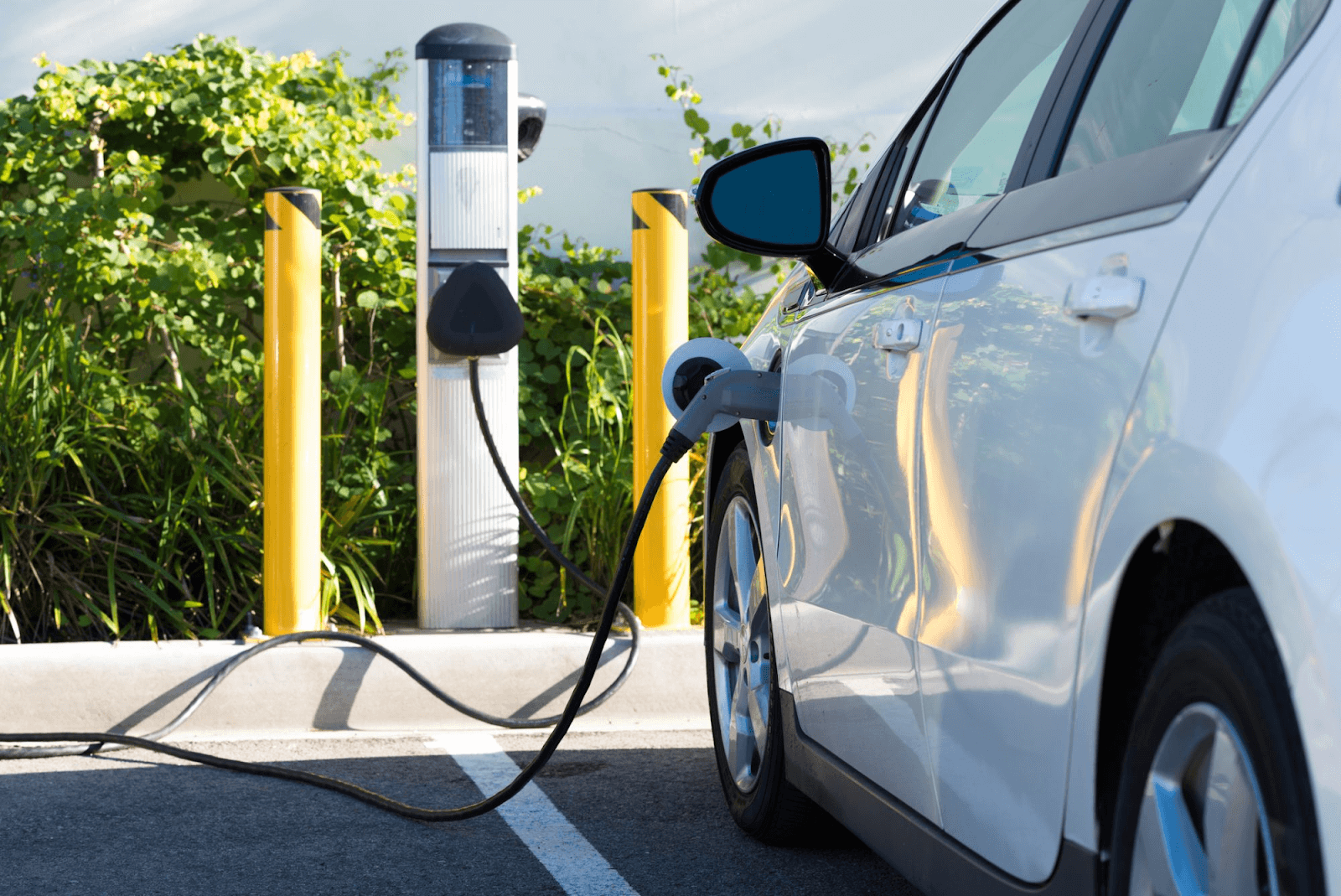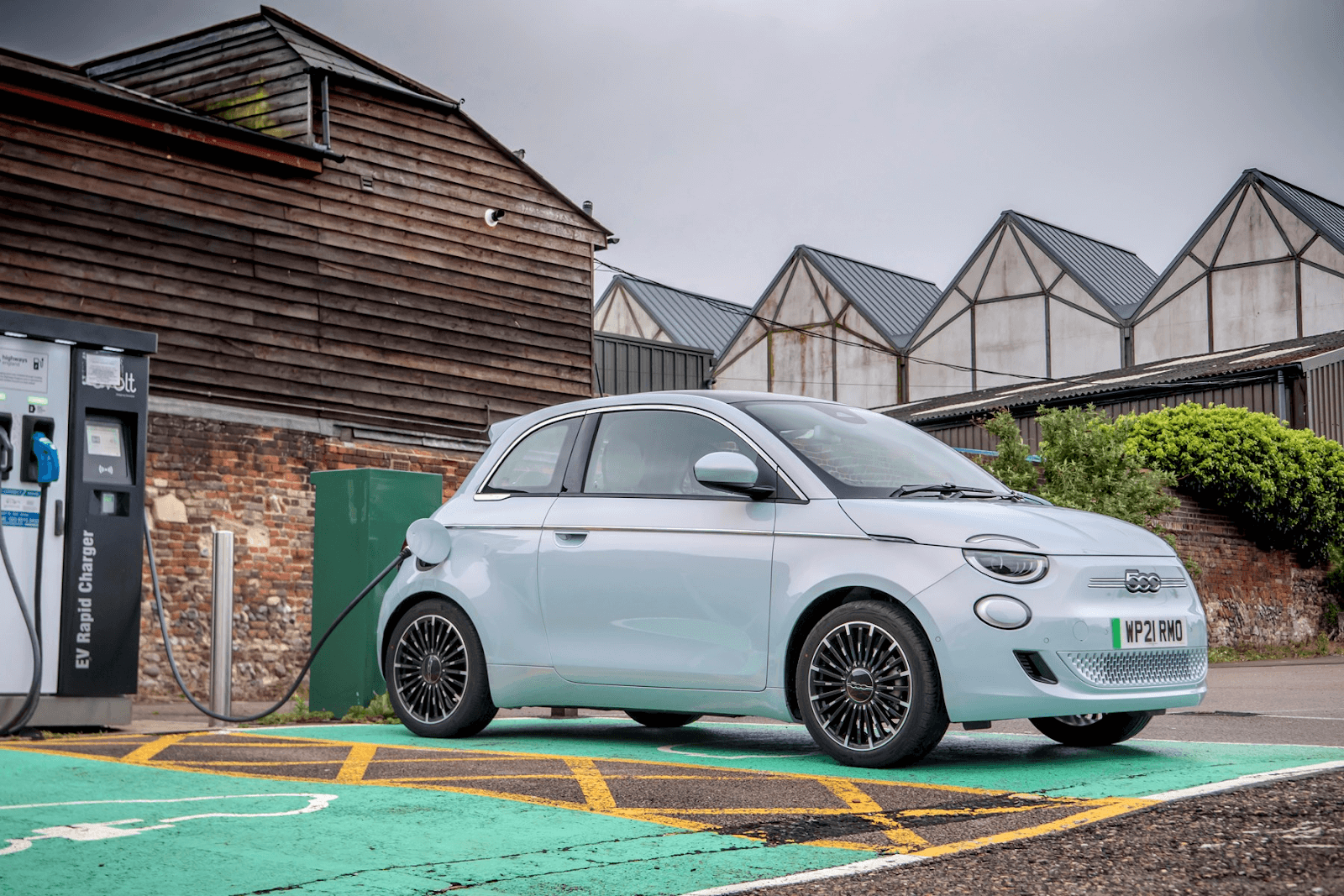EVs are definitely generating a buzz. Over a million electric cars roam UK roads, with an 18% rise in registrations last year. In March 2024, they made up 15.2% of new car registrations. Why the rise?
At the same time, why are some still hesitating? What’s exactly stopping them from joining the trend? Let’s weigh the pros and cons of electric cars and see where you fall. And whatever side you end up on, remember that Carplus is your go-to for getting the car you want on great terms.
Advantages of electric cars

As you weigh the electric cars pros against conventional cars, consider these:
1. No fuel required
With fuel prices on the rise, running diesel and petrol cars is getting more expensive. But for electric vehicle owners, this isn’t a concern since electric cars don’t need fuel. This saves them money and the hassle of waiting in line at a gas station.
Read more in the article - How Much Does It Cost to Charge an Electric Car?
2. Savings
While charging an electric car at home does involve some costs, you can save more by choosing electricity tariffs wisely. Even more so if you have solar panels installed. Using public chargers during off-peak hours will also lower your charging expenses.
Additionally, many supermarkets, car parks, and workplaces offer free charging for electric cars. You can easily find nearby charging points with a quick online search.
3. Zero emissions
Direct emissions are the pollution that vehicles release while driving. Traditional cars with internal combustion engines create direct tailpipe emissions and have a substantial carbon footprint. In contrast, electric cars don’t produce any direct emissions because they run solely on electricity.
4. Popularity
As more people choose to drive electric cars, they’re getting easier to come by. Besides, more manufacturers are making electric models, so with bigger supply, prices are being pushed down.
Read more in the article - Should I Buy an Electric Car
5. Safe to drive
Perhaps not all electric vehicles, but most electric cars have advanced safety features and a lower centre of gravity, which reduces the risk of rollovers. Plus, there are fewer chances of mechanical failures.
6. Cost-effective
Most models on the market are energy-efficient electric cars. You get better fuel economy than you’d get with a combustion engine, which has to burn fuel (creating heat) and then convert that heat into motion.
7. Less maintenance
Traditional cars rely on mechanical engines with numerous moving parts, which increases the likelihood of breakdowns. These parts also need regular lubrication for smooth operation.
As for electric cars, they have minimal moving parts, typically fewer than 20 in the electric motor. This simplicity means fewer components that need servicing.
8. Reduced noise pollution
All electric cars offer a quieter ride compared to diesel or petrol cars because they don’t have gears, valves, fans, or engines running during drive time, thanks to their lack of an internal combustion engine. This quietness is a pleasant feature for many people who prefer a peaceful driving experience.
9. Battery life
Batteries in modern EVs are getting better with advances in battery technology. Newer battery packs are more efficient and last longer, which helps reduce range anxiety. Regenerative braking boosts battery performance even further.
10. Easy driving
Electric cars are easy to drive because they have only one gear, so you don’t need to shift between gears and the risk of stalling. They feature just two pedals—the brake and accelerator—similar to an automatic car.
11. Energy efficient
Advanced electric vehicles, like Tesla models, are way more efficient than their gas-powered counterparts. AEV batteries turn most of the energy into movement, while gas cars only manage about 20%. In other words, charging a battery goes much further in powering the vehicle compared to filling up a tank.
12. Convenience from home charging
It can take a lot of time to go to gas stations during a busy day and wait in line to fill up your tank. But with a home charger, you can recharge your electric car at home whenever you want, skip the long queues, and fill up anytime, day or night. Plus, in winter, you can warm up your car from inside your house using an app, so no need to go outside.
13. Fast, better performance
Battery electric vehicles feel highly responsive thanks to nearly instant torque when they start moving. Some electric models even surpass supercars in speed, which adds excitement to the drive. Their lighter weight also contributes to better performance.
For example, the Rimac Nevera can hit 0-60 mph in 1.85 seconds, and the Tesla Roadster achieves the same feat in just 1.9 seconds.
14. Growing infrastructure support
The number of electric vehicles on the road has skyrocketed in the past few years. This surge in demand for EVs has driven the expansion and improvement of the infrastructure for EVs.
It has also led to an increase in the production of EVs by manufacturers, as well as the introduction of government subsidies and grants to encourage more people to switch to electric vehicles.
Carplus will help you find the best electric car for yourself for an affordable price!
Looking for the perfect electric car at an affordable price? Carplus has you covered! We’ll help you discover the best electric vehicle that suits your lifestyle and budget. Request a quote from Carplus and begin the search for your next car today.
Disadvantages of electric cars

Well, electric cars certainly have their perks, but there are also a few cons of electric cars to consider:
1. Recharge points
The availability of charging stations depends on where you live. Some areas have plenty, while others require more time to find a suitable one. The slow infrastructure development is still one of the electric car drivers’ concerns, especially during long trips.
2. Price
The price gap between petrol/diesel cars and EVs is one of the biggest electric cars cons. For example, the price of a used Fiat 500 Electric is £11,000 and up, while the petrol Fiat 500 starts at £3,000.
3. Short driving range
If you opt for a budget EV, you might not get more than 200 miles per charge, which is less than the typical 300-mile range of a gasoline-powered car.
4. Longer recharge time
Charging an electric car takes much longer than refueling a petrol or diesel car, even with a rapid charger that can take up to 30 minutes to charge electric motors to 80%.
If you have a home charger, you can plan to charge your electric car while it’s parked in your garage for an extended period. But it mostly has to be overnight after finishing your daily tasks or returning from work.
5. Expensive battery replacements
Electric cars work through their battery pack, which is one of the priciest parts. Though rare, batteries can malfunction or require repairs, which is expensive.
Thankfully, batteries come with a warranty lasting a few years. If a car’s battery fails within this period, manufacturers cover the cost of a replacement at no charge.
6. Governments lag in EV incentives
As electric vehicles become more popular and their production costs decrease, the availability of government grants should also decrease. Government grants currently attract buyers to purchase electric cars, but it’s not forever. We’ve already seen a reduction in government discounts, such as the Plug-In Hybrid Car Grant decreasing from £2,500 to £1,500.
7. Range tied to battery capacity
An EV’s mileage on a single charge varies based on battery size, weather conditions, battery age, and driving habits. Similarly, the range of traditional cars depends on factors like the engine’s age and performance.
For electric vehicles, you have to plan charging stops during long drives. You don’t need to do it with petrol/diesel cars because of the greater availability of filling stations.
8. E-waste
Fully electric cars don’t release emissions from their tailpipes, but they still have an impact on the environment. When electric cars are made, they emit harmful gases and use unsustainable materials and methods. If they get their energy from a grid powered by fossil fuels, they also indirectly contribute to greenhouse gas emissions.
9. Limited selection of EVs
The electric vehicle market is growing, but it’s not yet as extensive as the traditional car market. There are more choices in the diesel and petrol car market, including different models and features, compared to electric cars.
This can be a problem for people looking for specific types of cars, like family cars. Right now, there are more options for two-seater electric cars than larger ones for families.
10. Limited driving experience
Because electric cars use a single-speed transmission, some drivers find the driving experience less engaging than manually controlling gears for a more powerful feel.
Pros and cons of electric cars: Comparison Table
Here’s a concise comparison of the key pros and cons of electric cars.
| Advantages | Disadvantages |
|---|---|
| + Cheaper operating costs | - Limited availability of recharge points |
| + Lower maintenance expenses over time | - Higher upfront cost compared to gas-powered cars |
| + Cleaner air, reduced greenhouse gases | - Still relatively short electric range |
| + Growing global adoption of EVs | - Charging takes longer than refueling |
| + Advanced safety features, reduced accident risks | - High cost for battery replacement |
| + Long-term savings | - Varying government incentives and support |
| + Fewer mechanical issues | - Driving range affected by battery capacity |
| + Quieter operation, less noise pollution | - Challenges in battery disposal and recycling |
| + Batteries designed to last longer | - Limited options compared to other cars |
| + Smooth acceleration | - Missing traditional driving aspects |
| + Higher energy conversion | |
| + Convenient charging at home | |
| + Impressive torque, responsive acceleration | |
| + Increasing availability of charging stations |
Future outlook and trends in the UK
The UK is making big strides in its goal to phase out new fossil fuel vehicles, which is supported by over £2 billion in government funding. Recent industry data indicates that 20% of new car sales last year were zero-emission vehicles. There were also over 48,000 public charge points available, alongside charging points installed in homes, where the majority of charging occurs.

Fast charging, specifically, is instrumental for electric vehicles to gain widespread acceptance. The EV charging industry in the UK is booming with investments from both public and private sectors. As a result, we’re seeing more and more fast-charging stations that can fully charge vehicles in shorter times. In the recent data, there’s been a notable 68% increase in ultra-fast charging points over the last couple of years. What’s more, the number of traditional electric charging stations has also gone up.
That said, the future of EV charging goes beyond stations — it’s also about linking them to smart grids and homes for better energy management. The cost savings from smart charging access don’t just benefit EV drivers. As nine to eleven million EVs are expected on the roads by 2030, this surge will boost off-peak electricity availability and save the UK billions. Studies suggest that a flexible grid could save the UK £10 to £17 billion by 2050 since it reduces the need for backup power generation and grid upgrades.
Conclusion

Did these pros and cons help you make a decision? For many, the benefits of an EV outweigh any drawbacks. However, whether an electric car is right for you depends largely on your location. Cold climates affect EV performance, and a decent charging station network is key.
If you have a short daily commute, aim to save money, and want to reduce fossil fuel dependency, definitely consider getting an EV!
Table of Contents








